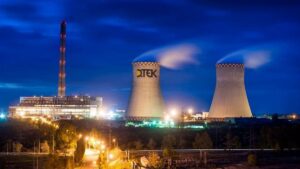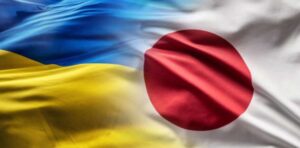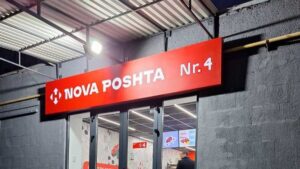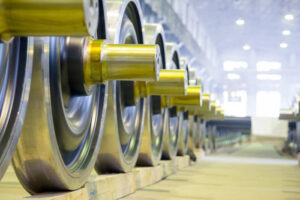
In January–June 2025, DTEK Energy allocated UAH 6.9 billion to preparations for the 2025/26 heating season.
“Key areas include repairs, restoration of thermal power plants, and support for Ukrainian coal mining,” the company said in a press release.
In particular, as noted by DTEK Energy, given the challenges of the war and the consequences of numerous massive attacks on energy infrastructure, the energy holding company is continuing its ongoing repair campaign at thermal power plants. In six months, about UAH 4 billion has already been allocated for this work, which is more than in the whole of 2024, making it possible to prepare generating capacities for winter and maintain the reliability of the power system.
At the same time, intensive preparations are underway at Ukrainian mines. The company’s own investments in coal production since the beginning of the year amounted to UAH 2.9 billion. As a result, in the first half of the year, DTEK Energy miners put seven new coal seams into operation, providing fuel for heat generation.
The company’s machine-building enterprises are also working to support the mines. In the first half of the year, they manufactured and repaired 1,707 pieces of mining equipment, including four new roadheaders, as well as 1.2 million spare parts and components.
“Our power engineers, repair workers, miners, and machine builders continue to work hard to provide Ukrainians with electricity, especially during summer peaks in consumption, and to lay a more reliable foundation for thermal power generation during the next heating season (…) We are continuing to repair and restore thermal power plants, investing in coal mining and providing mines with the necessary equipment,” said DTEK Energy CEO Alexander Fomenko.
According to the company, since the start of the full-scale war, the Russians have launched 205 strikes on DTEK Energy’s thermal power plants. Last year alone, there were 13 large-scale attacks on Ukraine’s energy infrastructure.
Since February 2022, 56 power plant workers have been injured and four people have been killed in attacks on DTEK Energy’s thermal power plants.
DTEK Energy provides a closed cycle of coal-fired power generation. As of January 2022, the company’s installed thermal power generation capacity was 13.3 GW. A complete production cycle has been established in coal mining: coal extraction and enrichment, machine building, and maintenance of mining equipment.

Ukrainian Prime Minister Yulia Svyrydenko and Japanese Ambassador to Kyiv Masashi Nakagome discussed the upcoming Ukrainian-Japanese business forum scheduled for the fall, as well as preparations for the arrival of two Japanese business missions.
“Today I met with Japanese Ambassador Masashi Nakagome. On August 5, Ukraine will celebrate its National Day at Expo 2025 in Osaka. This special event will be an expression of our sincere gratitude to the international community for its continued support,“ she wrote on social media on Friday, noting that she thanked the ambassador for the invitation but would remain in Kyiv, ”where my team and I are finalizing our government’s action plan.”
According to Svyrydenko, at the meeting with the ambassador, “we discussed the upcoming Ukrainian-Japanese business forum scheduled for the fall, as well as preparations for the arrival of two Japanese business missions.” The prime minister noted that work on the investment agreement “is progressing well, and our goal is to sign it this fall.”
Svyrydenko also said that another important topic was Japan’s potential participation in the Cultural Resilience Alliance, an international initiative founded by Ukraine to support cultural recovery and resilience in times of war.
“We deeply value our partnership with Japan and look forward to strengthening our cooperation in the areas of investment, culture, and post-war recovery,” she emphasized.
The World Expo 2025 will be held in Osaka, Japan. It will last for six months in 2025: from April 13 to October 13. The theme of the exhibition is “Designing Future Societies for Our Lives,” with sub-themes of “Saving Lives,” “Expanding Life Chances,” and “Connecting Lives.”

The Parallel fuel station network (TM Parallel) has grown to 76 fuel stations in eight regions, according to a press release issued by the company on Thursday.
“And we are not stopping there,” the release said, while in an interview with Delo at the end of April, the number of stations was 63.
The company noted that in the first half of 2025, it paid more than 724 million to budgets at all levels: 414 million UAH in excise tax, 278 million UAH in VAT, 13 million UAH in income tax, and 2.4 million UAH in military tax.
According to Alexander Dubinin, CEO and owner of Parallel, the company is continuing to implement a comprehensive program to upgrade its gas stations, which includes modernizing facilities, improving service quality, and making things more convenient for customers.
According to the release, Parallel gas stations operate in Dnipropetrovsk, Odesa, Kyiv, Cherkasy, Chernihiv, Poltava, and in the Donetsk and Zaporizhzhia regions controlled by Ukraine.
As reported, before the war, the Parallel network had 132 gas stations. As a result of the full-scale invasion, Parallel lost or suspended operations at most of its facilities.
In 2024, the company increased its tax payments by more than 2.5 times, to over UAH 1.7 billion,
and in early 2025, it resumed its partnership with FC Shakhtar, which lasted from 2008 to 2014, when the network, like the club, was owned by Rinat Akhmetov’s SCM. The partnership is set to last for 2.5 years and includes putting the Parallel logo on the team’s jerseys, advertising during home games, loyalty programs, and social media activity.
Parallel is a member of the Ukrainian Oil and Gas Association and one of the 10 largest fuel importers in Ukraine.

Nova Poshta, the leader in express delivery in Ukraine and part of the Nova Group, increased its revenue by 23% in the first half of 2025 compared to the same period in 2024, to UAH 24.6 billion, the company reported on Thursday.
According to the release, the volume of parcels and cargo delivered amounted to 238 million, which is 7% more than in the same period of 2024.
Earlier it was reported that in the first quarter of this year, Nova Poshta increased its revenue by 21.3% to UAH 11.85 billion and delivered 106.6 million parcels and cargoes.
According to the release, 5.9 million international parcels were delivered in the first half of 2025, compared to 10.2 million for the whole of 2024.
In addition, the Nova Poshta branch network grew by 708 locations in the first six months of this year, to 13,985, and the number of parcel terminals increased by more than 4,000 to 28,326, while in mid-2024 there were 12,180 and 18,370, respectively.
It is noted that in six months, NOVA Group companies paid UAH 7.9 billion in taxes and fees in Ukraine, which is 36% more than in the first half of 2024: Nova Poshta – UAH 6.1 billion, NovaPay – UAH 765 million, Nova Digital – UAH 211 million, Nova Global – UAH 94 million.
The company noted that in the first half of 2025, capital investments amounted to UAH 1.9 billion. The funds were allocated to network expansion, modernization of sorting hubs, renewal of the logistics fleet, development of energy independence, and digital solutions, while in the first six months of last year, the company reported UAH 3.6 billion in capital investments.
According to the release, in January-June this year, UAH 983 million was allocated to charity, 1.4 million humanitarian shipments, or 35,700 tons, were delivered, and a total of more than 4.6 million have been delivered since the start of the full-scale invasion.
The main activity of Nova Poshta remains the express delivery of documents, parcels, and palletized large-size cargo.
The company is the leader in express delivery in Ukraine. Its ultimate beneficial owners are Volodymyr Poperechnyuk and Vyacheslav Klimov.

The volume of export traffic of JSC Ukrzaliznytsia in January-June 2025 decreased by 13.5% to 38.7 million tons, domestic traffic by 11.7% to 35.5 million tons, while the volume of imports increased by 5.4% to 5.3 million tons, the company’s CEO Oleksandr Pertsovsky reported on Facebook.
“In the first half of 2025, Ukrzaliznytsia transported 79.6 million tons of cargo, which is 11.8% less than last year. With this trend continuing throughout the year, the annual figure will be approximately 50-52% of the freight volume in the period before the full-scale invasion (2021). We are currently experiencing the lowest load in the history of the railway, which is extremely painful for the company’s ability to function, as freight traffic has always been the main source of income for the railway,” he said.
Percovsky clarified that the largest decline was in the transportation of coal, which fell by 27.5% due to the loss of mines and the deterioration of the security situation, and grain and milled products, which fell by 32.5%.
“Farmers point to the late start of the season, so we are counting on some levelling off later in the year (more shipments went out in July). Fair rules of the game are also important: we are working closely with the State Railway Transport Inspectorate on stricter checks of weight limits so that grain is not transported to ports in violation of weight limits, ‘killing the roads’ with trucks,” said the CEO.
According to him, the company managed to work with customers in the construction industry, and against the backdrop of some market revival, construction transportation of building materials increased by 4% and cement by 10%. However, as Pertsovsky emphasized, the current ultra-low tariffs for this group of goods do not add to UZ’s profits.
The CEO explained the growth in imports by the work of colleagues from the commercial team, who were able to convince important players in the fuel market to try rail services and use our logistics with our subsidiary UZ Cargo Poland.
As for transit, it is almost non-existent in the context of the war with Russia, although the company is taking its first steps towards building multimodal routes, Pertsovsky said. He recalled that in the first half of this year, the first transit container ferries were sent to Georgia, opening up opportunities for transit to Azerbaijan, Kazakhstan, and, in the future, increasing transit volumes from China through the “Middle Corridor.”
He also said that UZ had launched a systematic survey of freight customers. “The customer loyalty index (NPS) was -27%. It’s an honest start, but it was important to record it. We have taken specific steps (in particular, in terms of digital services and work on cargo delays) and will continue to measure progress,” Pertsovsky emphasized.
Among the issues that the company was unable to resolve in the first half of the year, he mentioned the indexation of freight tariffs, which “froze at the level of mid-2022.”
“We are working to prove that there must be a balance and a fair approach to those who make it possible to sell these cargoes – our Ukrainian railway workers,” said the CEO of UZ, pointing to wage growth and investments in the company’s customers.
As reported, in 2024, Ukrzaliznytsia increased freight traffic by 17.9% compared to the previous year, to 174.9 million tons.
Last year, UZ increased export transportation by 51.2% to 84.67 million tons, imports by 40.9% to 9.63 million tons, while domestic transportation decreased by 5.5% to 80.2 million tons.

In January-March of this year, Interpipe, an international vertically integrated pipe and wheel company (TKC), reduced its capital investments by 46.2% compared to the same period last year, from $13 million to $7 million.
According to the company’s interim report, capital investments in the pipe segment amounted to $3 million during this period, compared to $9 million in Q1 2024.
In addition, investments in the railway products segment during the reporting period also amounted to $3 million ($3 million), and in the steel and other segments – $1 million ($1 million).
It is also noted that as of March 31, 2025, consolidated total debt amounted to $268 million and consisted of $258 million in 2026 bonds and two bank credit lines (denominated in euros) totaling $10 million.
Cash and cash equivalents amounted to $312 million thanks to stable financial results and the gradual redemption of 2026 bonds. Consolidated total net debt was negative at $45 million at the end of March 2025.
The consolidated net leverage ratio (total net debt to EBITDA) as of March 31, 2025, was also negative at -0.2x.
It should be noted that since 2025, the company has reduced the amount of outstanding 2026 bonds to approximately $236 million through a public offering and a series of market buybacks.
Interpipe is a Ukrainian industrial company that manufactures steel pipes and railway products. The company’s products are supplied to more than 50 countries worldwide through a network of sales offices located in key markets in the Middle East, North America, and Europe. In 2024, the company transferred UAH 5.5 billion to budgets of all levels.
The company’s structure includes five industrial assets: Interpipe Nizhnedneprovsky Pipe Rolling Plant (NTZ), Interpipe Novomoskovsky Pipe Plant (NMTZ), Interpipe Niko-Tube, Dnipropetrovsk Vtormet, and the Dniprostal electric steel rolling complex under the Interpipe Steel brand.
The company employs approximately 9,500 people.
The ultimate owner of Interpipe Limited is Ukrainian businessman and philanthropist Viktor Pinchuk and members of his family.